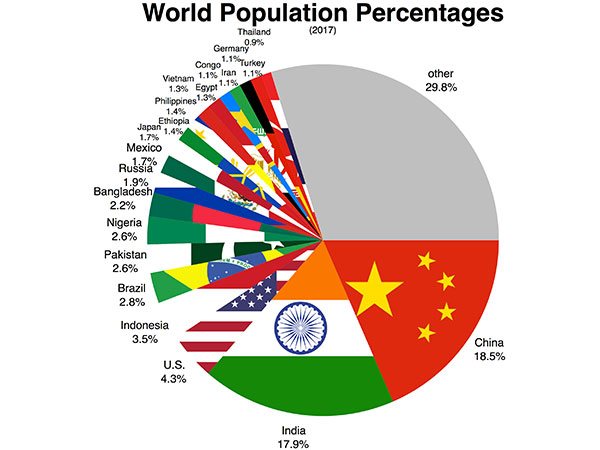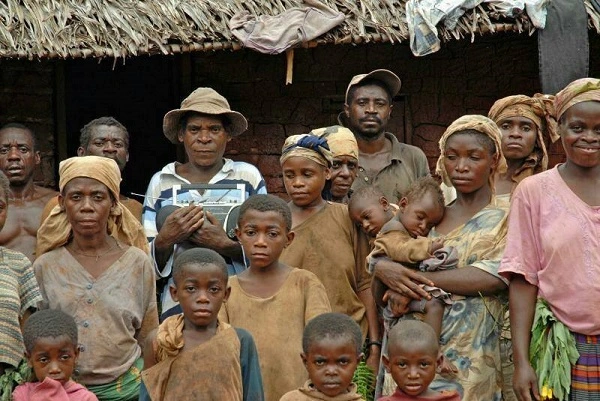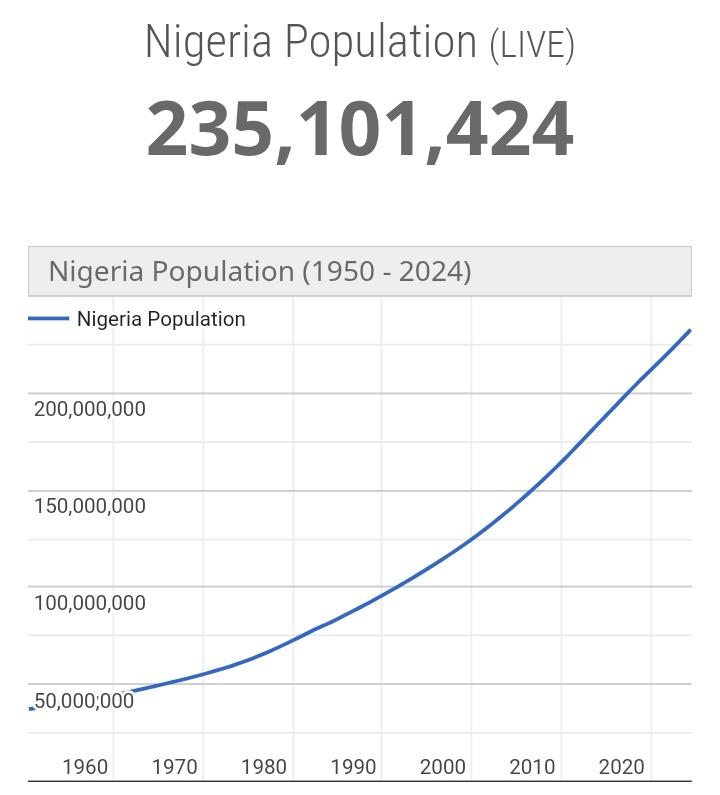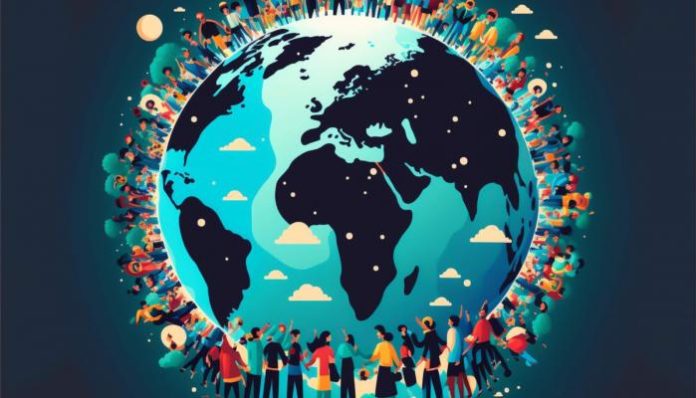According to U.S. Census Bureau estimates released Monday, the world population increased by more than 71 million people in 2024 and will be 8.09 billion people on New Year’s Day.
The 0.9% increase in 2024 was a slight slowdown from 2023 when the world population grew by 75 million. In January 2025, according to the estimates, 4.2 births and 2.0 deaths were expected worldwide every second.
Of the 71 million added people on earth, Africa alone contributed approximately 34.37 million in 2024, or nearly 50% of the population increase.
Africa’s growth rate of 2.32% is the highest of all the continents. As of 2024, its total population was around 1.531 billion.

The estimated population growth in Africa for 2025 is around 2.34%, with a projected population of 1.549 billion people. This means Africa’s population is expected to increase by around 33.8 million in 2025 alone.
The population of sub-Saharan Africa is projected to double by 2050, which will significantly impact the continent’s economic, social, and environmental development.
The United States’ population grew by 2.6 million people in 2024, and according to the Census Bureau, it will be 341 million on New Year’s Day.

The Census Bureau said the United States is expected to have one birth every 9 seconds and one death every 9.4 seconds in January 2025. International migration is expected to add one person to the U.S. population every 23.2 seconds. The combination of births, deaths, and net international migration will increase the U.S. population by one person every 21.2 seconds.
So far in the 2020s, the U.S. population has grown by almost 9.7 million, a 2.9% growth rate. In the 2010s, the U.S. grew by 7.4%, the lowest rate since the 1930s.
Impact of Unchecked Growth
According to the United Nations, the world’s population is projected to reach 9.7 billion by 2050 and 11.2 billion by 2100. This rapid growth poses significant challenges to global sustainability, resource management, and economic development.
The population growth crisis is driven by high birth rates in developing countries, particularly in Africa, where the population is expected to double by 2050.
Nigeria alone is projected to have 450 million people by 2050, making it the third most populous nation after China and India.

This growth pressures already scarce resources, such as water, food, and energy, leading to increased competition and potential conflicts.
The consequences of unchecked population growth are far-reaching. It exacerbates poverty, inequality, and environmental degradation, making achieving the Sustainable Development Goals (SDGs) harder. Population growth also intensifies climate change, biodiversity loss, and urbanization.
Governments, organizations, and individuals must work together to mitigate the crisis and promote sustainable development, family planning, and education. Investing in reproductive health and youth development can help reduce birth rates and slow population growth.
Comment, Like 👍, share this article, and Follow us on our social media handles.








